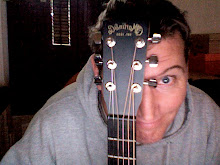And, speaking of that Meet The Press interview, here's the exchange when Russert implied that if the administration was looking for Sept 11 payback, we'd have been better looking at the Saudis than at Iraq.....
MR. RUSSERT: Vanity Fair magazine reports that about 140 Saudis were allowed to leave the United States the day after the 11th, allowed to leave our airspace and were never investigated by the FBI and that departure was approved by high-level administration figures. Do you know anything about that?
VICE PRES. CHENEY: I don’t, but a lot of folks from that part of the world left in the aftermath of 9/11 because they were worried about public reaction here in the United States or that somehow they might be discriminated against.
Not quite Michael Moore's allegation about the members of Bin Laden's family, but you get the drift.
Interesting that Cheney dosen't even acknowledge Russert's point - that the Saudis who fled were "allowed" to leave, and did so while the rest of us were prevented from flying anywhere...
(And disappointing that Russert didn't call him on it.)
MR. RUSSERT: Vanity Fair magazine reports that about 140 Saudis were allowed to leave the United States the day after the 11th, allowed to leave our airspace and were never investigated by the FBI and that departure was approved by high-level administration figures. Do you know anything about that?
VICE PRES. CHENEY: I don’t, but a lot of folks from that part of the world left in the aftermath of 9/11 because they were worried about public reaction here in the United States or that somehow they might be discriminated against.
Not quite Michael Moore's allegation about the members of Bin Laden's family, but you get the drift.
Interesting that Cheney dosen't even acknowledge Russert's point - that the Saudis who fled were "allowed" to leave, and did so while the rest of us were prevented from flying anywhere...
(And disappointing that Russert didn't call him on it.)

